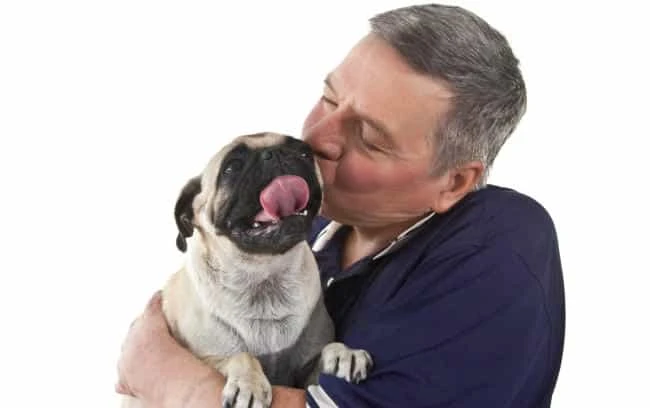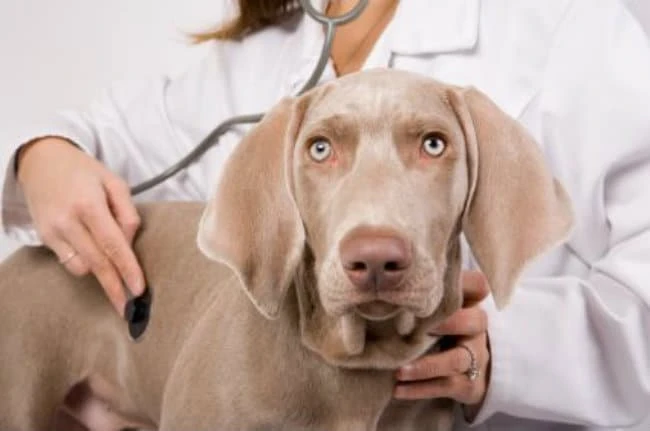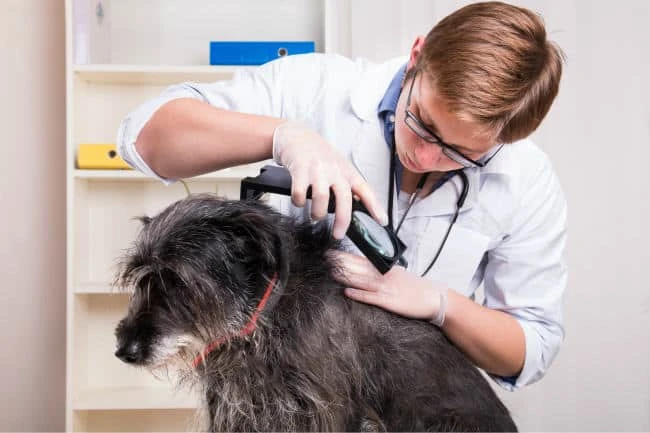Pet Health, Training, and Nutrition

The Dog Owners Guide To Whelping Puppies
Whelping puppies basically refers to the process of a pregnant dog giving birth to ‘Whelps' i.e. newborn puppies. After your dog has mated and become pregnant the time between pregnancy and birth is about 63 days – although this can vary by six days. This should give you enough time to find […]

The Dog Owners Guide To Thyroid Problems
There are two main causes of thyroid problems in dogs – both with different symptoms. One type is referred to as Hypothyroidism and the other is known as Hyperthyroidism.Before we go into detail regarding each type lets start by going into a little more detail about the thyroid gland. There are two […]

The Dog Owners Guide To Tapeworms in Dogs
Tapeworms in dogs are an unpleasant and debilitating endoparasite that can be seen in puppies and adult dogs. The most common type of tapeworm is known as Dipylidium Caninum. The size of the worm can vary but they can grow to 50 cm in length (although they can grow to many feet […]

The Dog Owners Guide To Symptoms Of Worms In Dogs
The symptoms of worms in dogs obviously vary depending on what type of worm your dog or puppy as been infected with i.e. Roundworms, canine Ring Worm etc. At the bottom of the page we will provide links to the different types mentioned above as this page is really only dedicated to how dogs ingest […]

The Dog Owners Guide To Skin Cancer In Dogs
Skin cancer in dogs (tumors) are one of the most common types of cancers to affect dogs. Unfortunately it is very difficult (in fact almost impossible) for a vet to know whether a growth (tumor) is benign (non-cancerous) or malignant (cancerous) simply through the appearance of the growth. The most accurate way […]

The Dog Owners Guide to Skin Allergies in Dogs
Skin allergies in dogs and puppies can be just as debilitating as they are in humans. In fact it is only fairly recently that people realised that dogs and puppies could also experience allergies. An allergy in simple terms is the immune system reacting to a specific substance (the substance causing the […]

Causes Of Scabies In Dogs
This terrible canine skin infection is caused by the parasitic infection Sarcoptes Scabiei and is also referred to as Sarcoptic Mange (it is highly contagious and passes from dog to dog through contact – but also from an infected area – more on this later). Alongside this form of mange there is […]

The Dog Owners Guide To Roundworms in Dogs and Puppies
Roundworms in dogs is just one of several types of worms that can affect dogs and puppies. Other types include Whipworms, Tapeworms, Ringworm, Heartworm and Hookworm – each variety will cause different symptoms in your dog or puppy and all will need to be treated as soon as any symptoms are seen […]

The Dog Owners Guide to Ringworm on Dogs
Ringworm on dogs is fairly uncommon and develops when your dog's hair and skin becomes infected with the ringworm fungus. Probably the most common type of ringworm fungus that affect dogs and puppies is a type known as Microsporum canis and a common way for the fungal infection to be passed to […]

The Dog Owners Guide To Removing Ticks from Dogs
When removing Ticks from Dogs you need to take your time and not rush the removal process. Due to the fact that the Tick will be feeding and engorged deep into your dog's skin it is very easy to make the mistake of leaving the head in once you have attempted to […]

The Dog Owners Guide To Rabies in Dogs
Rabies in dogs is a horrific and fatal disease that can cause a variety of very unpleasant symptoms in dogs (it can also infect humans). The disease is transmitted through infected saliva (normally passed through a bite from an infected animal). It is possible for the symptoms of the disease to take […]

The Dog Owners Guide To Pyometra in Dogs
Pyometra (Pyometritis) is a very serious condition that affects older female dogs (normally dogs over the age of six) who have not been spayed. This condition occurs when large amounts of fluid start to accumulate in the female dog's uterus (it is more often seen in dogs that have recently been on […]

The Dog Owners Guide to Puppy Teeth
If you want to know about puppy teeth then you are in the right place. Puppies are normally always born without teeth with the Incisors being the first teeth to develop (these normally start to grow when the puppy has reached two to three weeks of age). The canines and premolars are […]

The Dog Owners Guide To Patellar Luxation In Dogs
The term Patellar luxation refers to a painful condition where the ‘Patella' or kneecap slips out of its normal position. There are varying degrees of the condition depending on its severity. However, the condition can be ‘medial' or ‘lateral'. Medial luxation refers to when the Patella slips out of the femoral groove […]

Dog Owners Guide To Parvo In Puppies
Parvo in puppies and dogs is one of the most serious health conditions that a pet can get – in fact the rarer type known as canine parvovirus myocarditis is fatal. Below we have covered all there is to know about this disease including the symptoms, causes and vaccine treatment for this deadly illness. The […]

Pancreatitis Diet For Dogs
The best Pancreatitis diet for dogs is one that is low in fat – mainly because high fat content in cheap dog foods is a contributing factor for the onset of the disease. Metabolic causes of the disease where the fat is high in your dog's blood stream are referred to as […]

The Facts About Neutering A Dog
The process of neutering a dog (male) will involve the vet surgically removing both testicles (the operation can be undertaken at any age). Of course the ultimate aim when neutering a dog is to stop your dog from being able father any offspring. Health Benefits To Neutering A Dog There are also […]

Dog Owners Guide To Liver Cancer In Dogs
Liver cancer in dogs is actually fairly rare with the condition affecting less that 1 1/2 percent of dogs. However, having said this it is more common for the disease to metastasize in the liver (basically meaning that it started somewhere else possibly in the spleen, pancreas or gastrointestinal tract and then […]

Dog Owners Guide To Kidney Stones In Dogs
Kidney stones in dogs is a particularly unpleasant canine illness that is actually more common in females than males. The reason the females are thought to be more susceptible to the condition is thought to be due to them having a shorter urethra. The cause of this condition is due to a […]

The Dog Owners Guide To Kennel Cough Treatment
Kennel cough treatment for dogs and puppies can come in a variety of forms. Although some people prefer to use home remedies including Homeopathic and natural alternatives other canine lovers prefer to use conventional treatments including conventional medications that will be prescribed by the vet. However, if you are one of those […]
